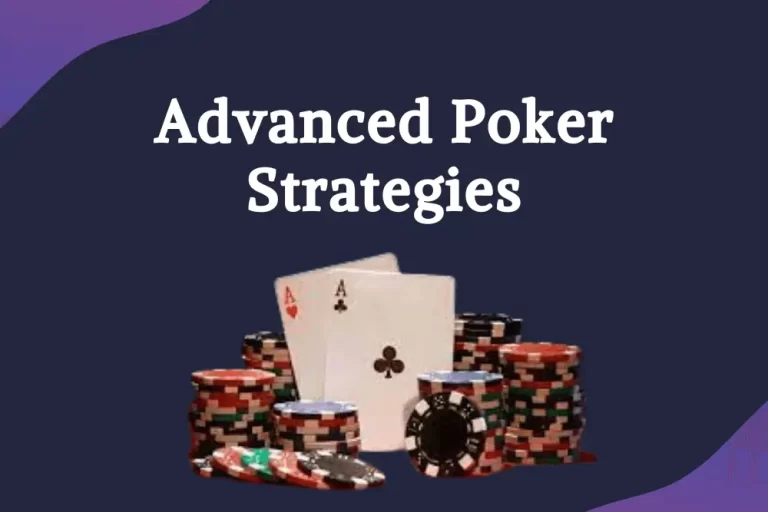In the highly competitive world of poker, where fortunes can change in the blink of an eye, advanced tactics are the keys that separate the masters from the novices. Whether you’re playing in a high-stakes tournament or a friendly home game, mastering these advanced poker strategies can significantly enhance your chances of success.
Art of Bluffing and Deception
Bluffing is a cornerstone technique in advanced poker play. It involves skillfully deceiving your opponents into believing that you hold a stronger hand than you actually do, compelling them to fold and surrender the pot to you. To execute a successful bluff, consider the following tactics:
1. Reading Your Opponents
To be an effective bluffer, you must become a master at reading your opponents. Analyze their playing styles and tendencies. Are they conservative or aggressive players? Use this valuable information to tailor your bluffing strategy for each opponent.
2. Board Awareness
Pay close attention to the community cards on the table. If the board presents possibilities for strong hands, your bluff becomes more likely to succeed. A well-timed bluff with the right board can be devastatingly effective.
3. Timing is Key
The timing of your bluff can make all the difference. Bluff when the odds are in your favor or when your opponents show signs of weakness. Proper timing can maximize the impact of your bluffs.
Exploiting Positional Advantage
Positional awareness is another advanced poker strategy that can significantly impact your success at the poker table. Understanding the power of your seating arrangement can lead to smarter decisions and larger wins:
1. Early Position
Players in early positions need stronger hands to stay in the game because they act before most opponents. Play cautiously in an early position and prioritize premium hands.
2. Middle Position
This position offers more flexibility. You can widen your hand range slightly and play a broader range of hands but still exercise caution.
3. Late Position
Being in a late position provides a valuable chance to gather information from your opponents’ actions. You can play a wider variety of hands and consider making moves to steal the blinds.
Capitalizing on Psychological Insights
The psychological aspect of poker is as crucial as the cards themselves. Advanced players harness psychological insights to gain an edge over their adversaries:
1. Tells
Observe your opponents closely for subtle physical or behavioral cues that reveal the strength of their hands. Twitches, hesitations, or changes in posture can all provide valuable information. Be discreet in your own body language to avoid giving away your own tells.
2. Table Image
Cultivate a consistent table image. If you’ve been playing conservatively, a well-timed aggressive move can catch opponents off guard. Conversely, if you’ve been aggressive, suddenly playing a strong hand straightforwardly can be equally effective.
3. Reverse Psychology
Occasionally, play contrary to your typical style to confuse opponents. If you’ve been bluffing consistently, suddenly play a strong hand straightforwardly. This unpredictability can make it difficult for your opponents to read your strategy.
Frequently Asked Questions
How do I avoid being read by my opponents?
Vary your betting patterns and use a mix of strategies to keep your opponents guessing. Consistency in your play can lead to predictability, so change it up.
Is bluffing in every hand a good strategy?
No, constant bluffing will likely lead to predictability. Bluff selectively to maintain an air of uncertainty and keep your opponents on their toes.
Can I learn poker psychology overnight?
Learning to read opponents takes time and practice. Study their behavior over multiple games to enhance your insights. It’s a skill that improves with experience and observation.
